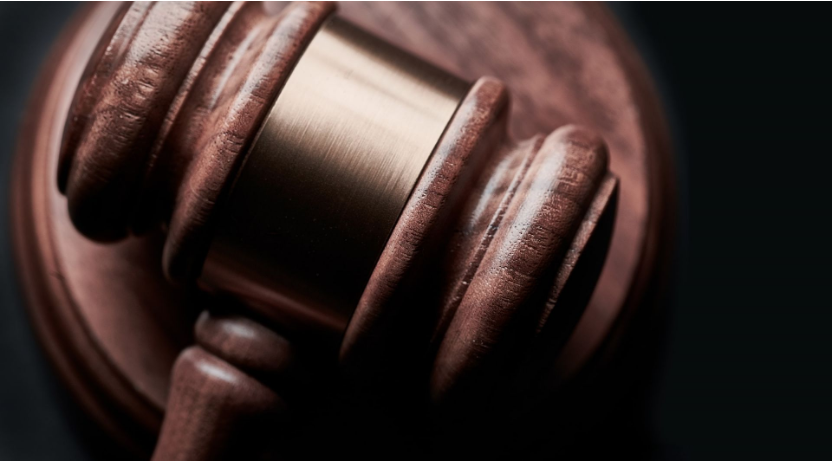CEO Insight: The Future of the Rule of Law

I recently had the privilege of gaining insight into the thinking of aspiring young lawyers. It was both inspiring and concerning.
On the one hand, the level of knowledge, articulation of ideas and considered responses to the essay competition question I was asked to judge was impressive, but on the other – there was a real sense of pessimism.
The question? What will be the challenges to the rule of law in the next 20 years?
A clear and consistent concern emerged: the erosion of democratic norms, the rise of artificial intelligence, persistent corruption, and the climate crisis all threaten legality, accountability, and equality before the law.
The rule of law has long served as the cornerstone and guiding principle of legal systems worldwide. But in an era defined by rapid technological innovation, geopolitical instability, and shifting social norms, the legal community is grappling with a fundamental question: What does justice look like in the 21st century, and how can we safeguard the rule of law amid profound transformation?
The challenges are undeniable and while it’s not difficult to see how those joining the legal profession may approach their future with caution – there are reasons for optimism.
Defending the rule of law was a prominent theme at the Commonwealth Lawyers Association Conference, which I attended last month. And although the World Justice Project’s 2024 Rule of Law Index reports a global decline for the seventh consecutive year, the data also points to a slowdown in that trend, offering hope that meaningful progress is still within reach.
A Catalyst for Sustainable Development
The rule of law is far more than a legal framework – it is the foundation of just, peaceful, and prosperous societies. It protects human rights, supports economic development, fosters public trust, and ensures power is exercised with accountability. It is also vital to achieving the United Nations Sustainable Development Goals.
It is in essence a powerful force for change and good or a “Great Enabler”. That is why if we want a just and sustainable future it is imperative we safeguard it.
But upholding the rule of law cannot be the responsibility of legal professionals alone. It requires coordinated action across governments, civil society, institutions, and citizens. The rule of law must move from the periphery to the centre of global development efforts.
At A4ID, we witness its transformative potential daily. Through strategic partnerships and expert legal support, we work across continents to strengthen judicial systems, promote access to justice, and protect fundamental rights.
Strengthening the Rule of Law in Practice
In a world marked by rising authoritarianism, growing inequality, and escalating conflict, the rule of law serves as both a shield against injustice and a framework for sustainable development.
Its resilience depends not on abstract ideals but on deliberate investment in the institutions and individuals upholding justice.
Collaboration is the heartbeat of our sector – when we come together our work can be far-reaching and impactful as we have seen at A4ID over the past 19 years. Our Rule of Law Expertise (ROLE) UK programme focuses on building long-term partnerships between the UK legal sector and legal actors in developing countries to strengthen the rule of law and facilitate progress towards the SDGs.
Defending Judicial Independence and International Collaboration
Judicial independence is fundamental to the integrity of democratic governance, and in this rapidly shifting world, the effectiveness of judicial systems increasingly depends on meaningful international collaboration.
The importance of this collaboration was clear when we partnered with leading judicial institutions to bring together 12 Supreme Court judges from across Africa for a high-level peer exchange. Critical issues such as threats to judicial autonomy, the ethical implications of emerging technologies, and the enduring relevance of African legal traditions were discussed.
The exchange provided a forum for comparative reflection on judicial leadership, executive encroachment, and the protection of democratic norms – highlighting the judiciary’s essential role in upholding the rule of law, particularly in politically sensitive environments.
Building Local Capacity for Long-Term Reform
Sustainable legal reform is rooted in local ownership and leadership. In this context, supporting judicial development programmes is key. Enabling high quality legal education, providing access to legal knowledge and supporting the capacity for judiciaries to independently deliver ongoing legal education is vital in working towards development goals.
Our work with partners has recently supported eight judicial development programmes in Nigeria and Jamaica, reaching over 220 legal professionals, including judges, magistrates, and court administrators. In Nigeria, that work has help to expand the National Judicial Institute’s trainer network, enhancing its capacity to independently deliver ongoing, high-quality legal education.
Safeguarding Civic Space
A vibrant civil society and independent media are essential to democratic accountability, yet civic freedoms face increasing threats worldwide. The legal profession has a vital role to play in protecting this space.
Strategic Lawsuits Against Public Participation (SLAPPs) – legal tactics used to intimidate and silence dissent – are on the increase and threaten the fundamental right to freedom of speech.
Journalists and all those who courageously seek to uncover truth and challenge impunity must be safeguarded. These voices must not only be heard, but powerfully amplified. The work they do is vital, and it is our collective duty to protect and uphold it.
From training for human rights defenders in Afghanistan to working with international legal and media organisations to deliver targeted legal training for journalists and lawyers in South Africa, A4ID is working with initiatives to counter these growing threats.
Legal training sessions in Zambia and Zimbabwe contributed directly to the creation of Southern Africa’s first anti-SLAPP guidelines, providing practical tools for protecting freedom of expression and supporting civil society actors on the frontlines.
A Shared Commitment to Justice
The imperative to build inclusive, accessible, and resilient legal systems has never been more urgent. As pressures on democratic institutions intensify, our collective responsibility is clear: to safeguard the rule of law, empower civil society, and ensure justice remains a universal right.
From judicial ethics to civic empowerment, peer knowledge exchange to cross-border reform, A4ID’s approach is grounded in one central truth: the rule of law is not a static ideal. It is a living principle that requires active nurturing, vigilant defence, and adaptive evolution.
Legal professionals – judges, lawyers, academics, and civil society advocates – play an indispensable role. Their expertise and ethical commitment are critical to advancing the rule of law amid complex and evolving challenges. From courtroom reform to international cooperation, their efforts are shaping a future where justice is a right accessible to all, not a privilege for a few.
At A4ID, we are steadfast in working alongside legal experts, institutions, and communities worldwide to uphold these principles and advance justice for all. We invite legal professionals, law firms, bar associations, and institutions to share your expertise, amplify your voice, and help build a world where the rule of law not only survives but thrives.
Together, we can forge a future grounded in justice, equality, and human dignity.
Find out more about legal pro bono service and our Our Rule of Law Expertise (ROLE) UK programme

